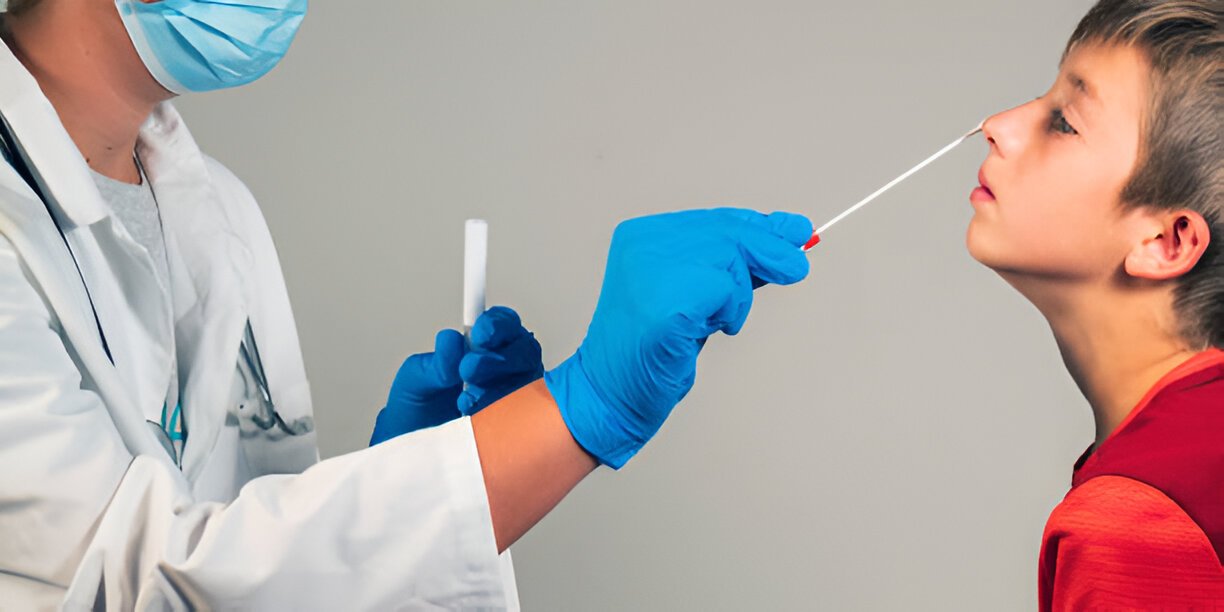Oral swab drug tests have become increasingly common in workplaces and legal settings, often catching individuals off guard. For those facing a sudden mouth swab test, knowing how to pass oral swab same day can be crucial. This quick and non-invasive testing method detects recent drug use, making it a challenge for many to navigate successfully without proper preparation.
Understanding the mechanics of oral swab tests and employing effective strategies can significantly improve one’s chances of passing. This article delves into practical tips and tricks to beat a mouth swab drug test, including the use of mouthwash, proper brushing techniques, and other methods to pass an oral drug test. From avoiding certain foods to using specific products, readers will gain valuable insights on how to pass a mouth swab test and maintain their professional or personal standing.
Understanding Oral Swab Drug Tests
Oral swab drug tests, also known as saliva drug tests or oral fluid tests, have become increasingly popular due to their non-invasive nature and quick results. These tests detect the presence of drugs or alcohol in a person’s saliva, providing insights into recent substance use.
How oral swab tests work
Oral swab drug tests involve collecting a saliva sample from an individual’s mouth using a swab. The process is straightforward and typically takes only a few minutes:
- A collection stick with a sponge or absorbent pad is used to swab the inside of the cheek or under the tongue.
- The saliva sample is then analyzed either on-site or in a laboratory.
- The test screens for specific substances using immunoassay technology.
It’s important to note that individuals may be asked to avoid eating, drinking, or using mouthwash for about 10 minutes before the test to ensure accuracy.
Detection windows for different substances
The detection window for oral swab tests is generally shorter compared to urine or blood tests. Substances are typically detectable in oral fluid within about 30 minutes of ingestion, making these tests effective for identifying current or recent drug use.
The general detection window for most substances in oral fluid ranges from 5 to 48 hours. However, this can vary depending on factors such as:
- The type of drug
- Frequency of drug use
- Individual metabolism
Here’s a breakdown of detection windows for common substances:
- THC (cannabis): Up to 24 hours
- Cocaine: 24-48 hours
- Amphetamines: 24-48 hours
- Opioids: 24-48 hours
- Benzodiazepines: 24-48 hours
It’s worth noting that for heavy or frequent users, some substances may be detectable for longer periods.
Accuracy of oral fluid testing
When performed correctly, oral swab drug tests have a high level of accuracy. Most tests boast an accuracy rate of around 97-98%. However, several factors can influence the accuracy:
- The type of test used
- Drug type and concentration
- Skill of the person administering the test
- Quality of the testing device
- Timing of the test within the detection window
Oral fluid testing has some advantages over other testing methods:
- It’s resistant to adulteration or cheating attempts
- The collection process is 100% observed
- It provides fast results, often within minutes
However, it’s important to note that while oral swab tests are highly accurate for recent drug use, they may not be as effective in detecting drug use beyond a few days. For this reason, they’re often used in situations requiring immediate action, such as post-accident testing or reasonable suspicion scenarios.
In conclusion, oral swab drug tests offer a quick, non-invasive, and accurate method for detecting recent substance use. Their shorter detection window makes them particularly useful for identifying current impairment, rather than historical drug use.
Effective Same-Day Detox Methods
Oral hygiene techniques
Maintaining proper oral hygiene plays a crucial role in reducing toxin content in saliva. Brushing teeth frequently has the potential to decrease the risk of surface contamination and remove contaminants or remains of oral fluids. While its effectiveness may be limited, regular practice is recommended. Individuals should brush their teeth at least twice daily, using a new toothbrush and a reputable brand of toothpaste. It’s important to scrub not only the teeth but also the tongue and cheeks for at least 2 minutes after breakfast and dinner.
Gargling is another effective technique to eliminate toxins and improve oral hygiene. It works similarly to brushing by promoting the production of fresh saliva. To maximize its effectiveness, one should gargle every 15 minutes for 4-5 hours before the test. This process involves taking a big mouthful of water and gargling with it for 20-30 seconds. Rinsing with water helps dilute the concentration of THC or other drug chemicals in the saliva, making them slightly harder to detect.
Hydration and saliva production
Staying hydrated is essential for passing an oral swab test. Drinking plenty of water aids in removing toxins and avoiding dehydrating liquids like alcohol. Individuals should sip water, herbal tea, or fruit juice frequently to stimulate saliva production. It’s important to note that new saliva typically has lower concentrations of drug-related chemicals compared to older saliva.
Chewing gum is another effective method to stimulate saliva production. This action changes the chemical makeup of oral fluids, potentially making the mouth swab test less effective. The increased saliva production helps dilute the concentration of any drugs present in the saliva.
Using detox mouthwashes
Detox mouthwashes have become popular for their potential to help individuals pass oral swab tests. These products are specifically formulated to rinse toxins and sometimes mask or eliminate them. Two widely used options are Toxin Rid Rescue Wash and Stinger Detox Mouthwash.
Toxin Rid Rescue Wash Mouthwash is particularly effective for passing an oral drug test. Unlike commercial mouthwashes designed for bad breath, this product contains a proprietary blend that aims to rid the mouth of detectable drug toxins just before a saliva test. For optimal results, users should follow these steps:
- Sip one-third of the one-ounce bottle a few minutes before the test.
- Hold the detox mouthwash in the mouth for three minutes.
- Repeat the process two more times, using the same amount each time.
The small, one-ounce bottle of Toxin Rid Rescue Wash Mouthwash is easy to carry discreetly and dispose of or hide before the test. Its key ingredients include Magnesium, Glycerin, Witch Hazel, Aloe Vera, and Ascorbic Acid. Magnesium activates enzymes focused on cleaning the mouth, while glycerin and ascorbic acid play a role in oxidizing and neutralizing toxins. Witch hazel, with its astringent properties, aids in cleaning the oral cavity.
Foods and Products to Avoid
Substances that can trigger false positives
Several common foods and products can potentially trigger false positives in oral swab drug tests. Individuals should be aware of these substances and avoid them before taking a test to ensure accurate results.
- Poppy seeds: These tiny seeds, often found in bagels, salad dressings, and crackers, can cause a false positive for codeine or morphine. Poppy seeds contain minute levels of morphine and codeine, ranging from 0.5 to 10 micrograms per gram. While this concentration is far lower than medical-grade morphine, it may still be detected in drug tests. It’s advisable to avoid consuming poppy seeds for a couple of days before a scheduled drug test.
- Hemp seeds and products: Hemp seeds, a variety of the Cannabis sativa L. plant, contain trace amounts of THC (tetrahydrocannabinol), typically around 0.3%. Although this level is insufficient to produce psychoactive effects, regular consumption of hemp seeds or products containing hemp oil (such as granola bars) may lead to a build-up of THC in fat cells. This accumulation can persist for up to five weeks and potentially result in a false positive for marijuana use.
- CBD (cannabidiol) products: Some CBD products may contain varying amounts of THC. While not exactly a false positive, it’s important to note that these products could cause a positive result for THC on a drug test.
- Coca tea: This beverage, made from coca leaves (the same plant used to produce cocaine), can break down to produce cocaine metabolites. Studies have shown that these metabolites can be detected in the body for up to 36 hours after consumption, potentially leading to a false positive result.
Items that may interfere with test results
Certain products and behaviors can interfere with oral swab drug test results or temporarily mask the presence of drugs in saliva. It’s crucial to be aware of these items and avoid them before taking a test:
- Mouthwash: Many individuals attempt to use mouthwash, particularly Listerine, to eliminate drug metabolites from saliva temporarily. While mouthwash can temporarily reduce drug concentrations in saliva, its effectiveness is limited and short-lived.
- Detox drinks: Although primarily marketed for urine drug testing, some detox drinks claim to eliminate drug traces from saliva. However, these claims are often inaccurate. Consuming such drinks immediately before a test may temporarily lower the concentration of some drug metabolites in saliva, but the effect is not reliable.
- Mints, citric acid candies, and chewing gum: These items stimulate saliva production and can temporarily change the pH and concentration of certain drugs in saliva. Depending on the amount of drugs in an individual’s system, this may reduce concentrations below the detection threshold. However, the effects are temporary and not guaranteed.
- Excessive water consumption: Drinking large amounts of water before a test may dilute saliva and potentially affect test results. However, this method is not reliable and may raise suspicion.
- Aggressive oral hygiene: Excessively brushing teeth, tongue, and cheeks immediately before a test may temporarily alter saliva composition but is not a foolproof method to pass a drug test.
It’s important to note that attempting to cheat or tamper with an oral fluid drug test is not recommended and can have serious consequences. Most oral fluid drug tests are directly observed, minimizing the risk of cheating. Additionally, individuals are typically required to keep their mouths empty (no food, gum, liquids, or tobacco) for at least 10 minutes prior to the start of the drug test.
Conclusion
Passing an oral swab drug test on the same day poses challenges, but it’s not impossible with the right approach. By understanding how these tests work and their detection windows, individuals can take steps to increase their chances of success. Proper oral hygiene, staying hydrated, and using detox mouthwashes are key strategies to consider. It’s also crucial to avoid certain foods and products that might trigger false positives or interfere with test results.
In the end, the most reliable way to pass an oral swab test is to abstain from drug use. However, for those in a tight spot, the methods discussed in this article might provide some help. Remember, attempting to cheat or tamper with a drug test can have serious consequences, so it’s always best to approach the situation honestly and responsibly. If you’re facing ongoing substance use issues, seeking professional help is the wisest course of action to ensure long-term health and success.
FAQs
1. What steps should I take before undergoing a mouth swab drug test?
Before a mouth swab drug test, it is advisable to avoid eating or drinking anything for at least 10 minutes prior to the collection of the specimen.
2. How long does it typically take for substances to no longer be detectable in saliva?
Drugs can be detected in saliva for a period ranging from 5 to 48 hours. For comparison, drugs can be detected in blood for about one to two days and in urine for approximately 1.5 to four days.
3. What substances are commonly identified in a mouth swab drug test?
A mouth swab drug test commonly screens for several substances, including alcohol, amphetamines, methamphetamine, barbiturates, benzodiazepines, marijuana, cocaine, and MDMA.




